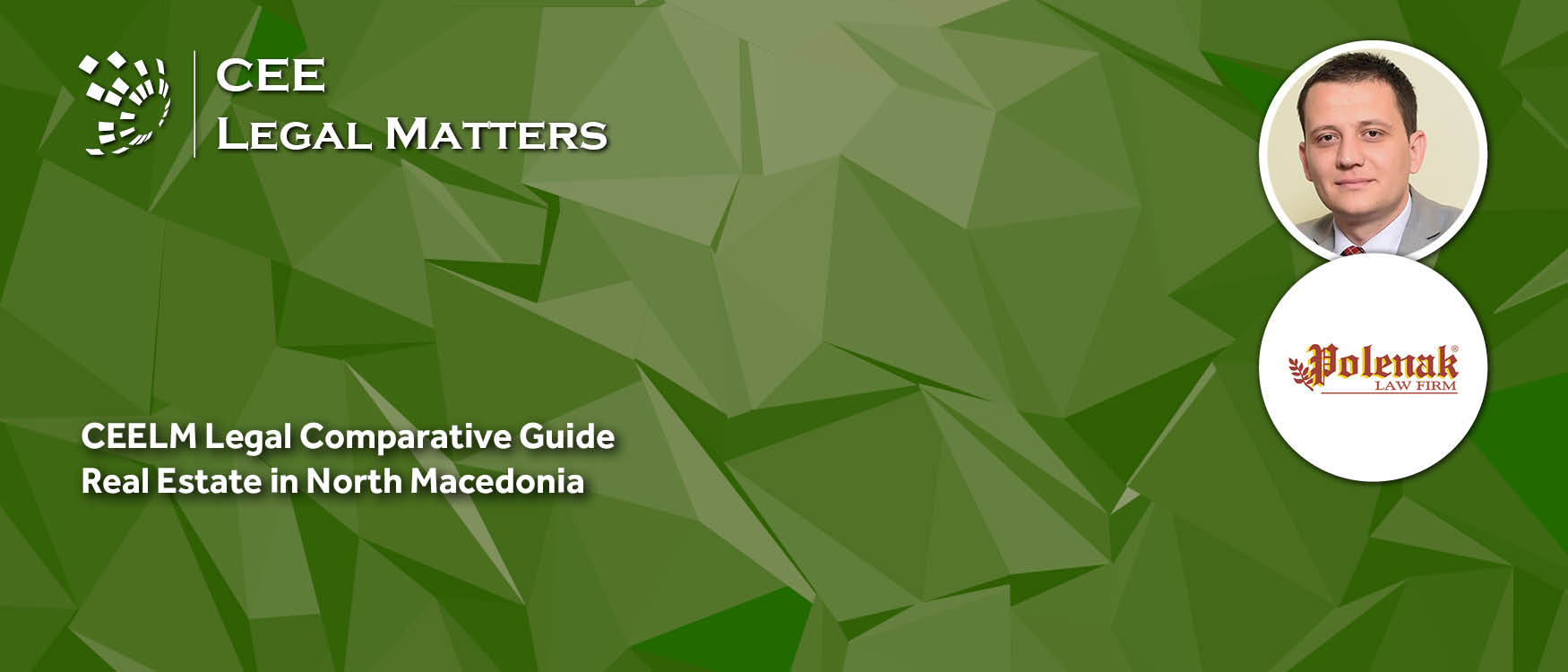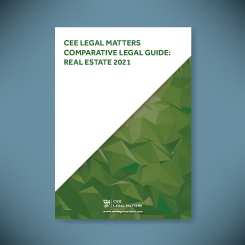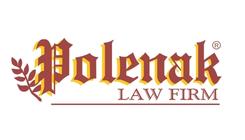Contributed by Polenak.
1. Real estate ownership
1.1 Legal framework
The right of ownership over real estate (RE) is guaranteed in the Constitution of the Republic of North Macedonia. Additionally, the rights regarding RE are regulated in the following laws: Law on Ownership and Other Real Estate Rights (Official Gazette of the Republic of Macedonia, No.18/2001 and its subsequent amendments); Law on Construction Land (Official Gazette of the Republic of Macedonia, No.17/2001 and its subsequent amendments); Law on International Private Law (Official Gazette of the Republic of Macedonia, No.87/2007 and its subsequent amendments); Law on Cadastre of Immovable Assets (Official Gazette of the Republic of Macedonia, No.55/2013); Law on Obligations (Official Gazette of the Republic of Macedonia, No.18/2001 and its subsequent amendments).
In accordance with the Law on ownership and other real rights, the Foreign natural persons and legal entities, residents of the member states of the European Union and OECD may acquire the right of ownership of an apartment and business premises in the territory of the Republic of North Macedonia in the same manner as the citizens of the Republic of North Macedonia.
Foreign natural persons and legal entities, residents of the non-member states of the European Union and OECD may acquire the right of ownership of an apartment and business premises in the territory of the Republic of North Macedonia in the same manner as the citizens of the Republic of North Macedonia, under the same conditions of reciprocity.
When it comes to land ownership, the law stipulates that Foreign natural persons and legal entities, residents of the member states of the European Union and OECD may acquire the right of ownership and the right to a long-term lease of construction land in the territory of the Republic of North Macedonia in the same manner as domestic legal entities and natural persons, citizens of the Republic of North Macedonia.
Foreign natural persons and legal entities, residents of non-member states of the European Union and OECD may acquire the right of ownership and the right to a long-term lease of construction land in the territory of the Republic of North Macedonia under the conditions of reciprocity.
More specifically, when it comes to the acquisition of real rights over agricultural land the law states that foreign natural persons and legal entities cannot acquire the right of ownership of agricultural land in the territory of the Republic of North Macedonia.
Foreign natural persons and legal entities may, under the conditions of reciprocity, acquire the right to a long-term lease of agricultural land in the territory of the Republic of North Macedonia, on the basis of a consent of the minister of justice, upon previously acquired opinion of the minister of agriculture, forestry and water resource management, and the minister of finance.
The existence of reciprocity foreseen shall be determined by the minister of justice, under the conditions and in the procedure determined by law.
The RE market trends in North Macedonia have been fairly dynamic. Investments in RE are taking place across all RE sector segments: residential, office, industrial, retail, casinos, mixed-use developments, and special-use properties.
1.2 Registration of ownership
The ownership of the RE assets is registered in the public books kept by the Real Estate Cadaster of the Republic of North Macedonia. In the public book is registered the right of ownership and other real rights of the real estate, of the real estate data, as well as of other relevant rights and facts whose registration is determined by law.
1.3 Publicity of real estate register
The entries in the registry are publicly available on the website of the Real Estate Cadaster Agency. On the website is presented partial data related to the owner of the RE property and the property itself. For more detailed information regarding the RE (whether there are registered encumbrances, etc.) it is necessary to get a property list as a title deed, which can be issued by a cadaster or a notary, and this service is chargeable and such list can be obtained by any third party.
Additionally, the registry of RE, as part of the Central Registry of North Macedonia issues information of informative character on ownership rights, data on land parcels and objects on such parcels, as well as information on liens. However, in accordance with the Law on Personal Data Protection, property lists will not contain the owner’s unique personal identification number (UPIN) when issued to a third person. This is due to the fact that a citizen’s UPIN is protected and may only be processed and issued with prior explicit consent by the relevant person/owner listed in the property list.
1.4 Protection of ownership
Property entries are binding. No person may be deprived or restricted of ownership and the rights deriving from it, except in the cases of public interest determined by law, and the owner has the right of judicial protection. The normative regulation of property lawsuits in the legal system of the Republic of North Macedonia is contained in several laws. Lawsuits for protection of property according to the Law on Ownership and Other Real Rights are the following: ownership lawsuit for return the possession of the RE (rei vindication), a lawsuit by a presumed owner (actio publiciana), a lawsuit against disturbance of ownership (actio negatoria), a lawsuit for protection of co-ownership, i.e. joint ownership, a declaratory lawsuit, and an extraction lawsuit. Lawsuits for protection of the RE right are lawsuits for change, i.e. for deletion of the entries in the Cadaster.
2. REAL ESTATE ACQUISITION
2.1 Share deal or asset deal?
The RE can be acquired either directly as an asset deal between the seller and buyer or by acquiring the shares of the legal entity who is the owner of e RE.
2.2 Share deal
The manner of acquire of the RE depends on evaluation of the risks by the acquirer of the RE having in mind that the acquisition of the shares means the acquisition of the owner company with all its liabilities toward any third party. The costs for the acquisition of the RE with an asset deal are slightly higher compared to a share deal. Also, the acquisition of the RE as an asset deal will be subject to property transfer tax (from 2% to 4% percent of the value of the RE) and such tax is not applicable at share deal. Usually, the procedure of acquisition of RE is subject to a prior due diligence process which should address all relevant risks and will determine the appropriate way for acquisition of the RE.
2.3 Asset deal
An asset deal is the purchase of a target's underlying assets. The transaction involves transferring the ownership of assets from the seller to the purchaser. The purchaser only acquires the assets along with any liens. The ability to choose specific assets provides the purchaser with flexibility. The purchaser does not spend money on unwanted assets and there is less risk of the purchaser assuming unknown or undisclosed liabilities. However, this also makes asset acquisitions more complex because the purchaser has to spend time identifying the assets and liabilities it wishes to acquire and assume.
2.4 Disposal process
The contract for sale and purchase obliges the seller to hand over the item it sells to the purchaser so that the purchaser acquires ownership, and the purchaser undertakes to pay the seller the agreed price. The contract for the sale and purchase of real estate must be concluded in writing form. The signatures of the contracting parties in the contract for sale and purchase of real estate are notarized or the contract is solemnized by the notary public. The costs for notarization and solemnization depend on the value of the RE and the notary determines them in accordance with the appropriate notary tariff. There are no special approvals for the transfer of ownership, except in the case the RE is a land that the seller acquired from the state in which case the seller needs to obtain prior approval from the State Attorney and to transfer all its obligation from the agreement with the state to the purchaser.
2.5 Registration of change of ownership
After concluding a contract for sale and purchase, the contract is submitted to the municipality for clearance of the property transfer tax. Once the property transfer tax will be paid, the contract for sale and purchase is notarized by a notary public and the notary submits the application for registration of the change in the real estate cadaster after which the purchased will be registered as the owner of the RE and the transaction will be considered as closed.
2.6 Risks to be considered
In the case of the sale of a co-ownership part, the other co-owners shall have the pre-emptive right to purchase. The co-owner who intends to sell his co-ownership part shall be obliged, by means of a written proposal through a notary, to offer for sale its part to the other co-owners and to announce the price and the terms of sale. If the co-owners of the RE who are offered the co-ownership part do not declare that they accept the offer within 30 days as of the announcement in the written proposal, the co-owner may sell its co-ownership part to another person. If several co-owners want to buy the ideal part of the thing under the same conditions, then it shall be given to the owner determined by the seller. In the case the co-owner who sells its co-ownership part does not submit an offer to all the co-owners, the co-owners who have not been given the offer may request the sale to be annulled in a court procedure. In the case the RE is agricultural land, the neighbors of the land also have the pre-emptive right to purchase the land. Also, any sale and purchase agreement of RE which the seller acquired in marriage should be subject to consent from the seller’s spouse.
3. REAL ESTATE FINANCING
3.1 Key sources of financing
Usually, the method of financing RE is by taking a loan from a bank and mortgaging the subject RE (mortgage). For that purpose, a pledge agreement (mortgage) is concluded with the bank that finances the purchase of the RE. This is regulated by the Law on Banks, the Law on Contractual Pledge, and the Law on Obligations.
3.2 Protection of creditors
The most common forms of security granted are a mortgage and/or a pledge. However, there are other forms of security such as a pledge over bank accounts; a pledge over shares; in some cases, a pledge over movable assets; or personal or corporate guarantees.
4. REAL ESTATE TAXES
4.1 Transfer taxes
Any asset deal would be subject to property transfer tax in an amount between 2% and 4% of the value of the RE depending on the municipality on which territory the RE is located. The basis for calculation of such tax is not the agreed purchase price of the RE but the market value of the RE determined by an evaluator employed in the municipalities.
4.2 Specific real estate taxes
Property tax shall be paid on the ownership of RE, i.e. land and buildings. The property taxpayer is the owner of the property. In the case when the owner is not known or cannot be reached, the property taxpayer is the user of the property. Property taxpayer can also be the taxpayer who usufructs the property, and if the property is owned by several persons, each of them is a property taxpayer proportionately to the part-owned. Property taxpayer is also the user of the RE owned by the state and the municipality. The property tax base is the market value of the real estate which can be determined by an evaluator employed in the municipalities. Additionally, upon a request by the municipality, the determination of the market value may be done by an official evaluator. Market value is determined according to the methodology for determining the market value of RE. Property tax rates are proportional and range from 0.10% to 0.20%. They can be determined on the basis of the type of property. Thus, tax rates for property tax on agricultural land not used for agricultural production can be increased from three to five times in relation to the basic rates. The rates are determined by a decision of the municipal council.
5. CONDOMINIUMS
5.1 Legal framework for condominiums
The Macedonian jurisdiction recognizes facilities that can be residential, residential-business, and commercial-residential.
Residential buildings, depending on the number of apartments in them, can be simple buildings or multi-apartment buildings.
Multi-apartment buildings are apartment buildings with two or more apartments that can be apartment blocks, multi-store buildings, and solitaires.
All owners of units in such residential buildings should enter into an agreement for regulating the mutual relations regarding the common parts of the building and covering the common costs.
This matter is regulated by the Law on Housing, the Law on Ownership and Other Real Rights, and the Law on Obligations.
5.2 Rights and duties of co-owners
The co-owner shall have the right to keep and use the RE together with the other co-owners proportionately to his part, without violating the rights of the other co-owners.
All co-owners are entitled to possess the whole RE, but they can decide among themselves to share the possession of the RE and the exercise of all or some of the co-ownership powers thereto.
The co-owner shall have the right, at any time, to request division of the RE, except at a time when that division would be to the detriment of the other co-owners unless otherwise determined by law.
The co-owner may manage their part without the consent of the other co-owners. Each co-owner, together with the other co-owners, shall have the right to participate in the decision-making about everything that concerns the RE being the subject of ownership (right of management). Where a co-owner takes activities without the consent required from the other co-owners, the rules on acting without an order shall apply. It shall be necessary to obtain consent from the co-owners whose parts constitute more than half of the value of the RE in order to take activities for regular management of the thing. Consent by all of the co-owners shall be required for taking activities that surpass the limits of regular management of the RE (transfer of ownership of the whole thing, change of the purpose of the thing, leasing the thing, the establishment of a pledge, establishment of real servitudes, major repairs and alterations, and alike).
The costs of using, managing, and maintaining the RE and the burdens related to the whole thing shall be covered by the co-owners proportionately to the size of their parts.
5.3 Liability of co-owners
The co-owner who intends to sell his co-ownership part shall be obliged, by means of a written proposal through a notary, to offer for sale his part to the other co-owners and to announce the price and the terms of sale.
5.4 Rights and duties of condominium associations
The condominium associations have the following rights and duties:
Executes the decisions of the owners of the units; takes care of regular maintenance and functioning of the common parts; represents the owners of the units in the management matters and on behalf of certain owners submits a lawsuit for release from the obligation to pay, i.e. a lawsuit for borrowing for payment of the costs and expenses of the owner of the special unit; represents the owners of the special units in front of the administrative bodies in the matters of issuing permits and consents and in the procedures for registration of real estate and other administrative procedures, in relation to the residential building and the land, as well as for other matters related to the management; prepares a plan for maintenance of the residential building, a plan with dynamics for implementation of this plan and takes care of the implementation of the plan; prepares a calculation of the management costs of the residential building and distributes the costs among the owners of the separate parts; receives the payments of the owners of special units on the basis of a monthly calculation and pays the obligations from the agreements concluded with third parties; informs the owners of the special units about their work and submits monthly and annual calculations; prepares an annual report for the management of the facility; manages the reserve fund in accordance with the provisions of this law; enumerates and numbers the apartments and reports the entry of the data in the body that keeps the public books of the real estates and should know the standards and norms for accessibility of persons with disabilities in the residential building.
6. COMMERCIAL LEASES
6.1 Form and contents of a lease agreement
The Law on Obligations does not require the form of a lease agreement, while the Law on Housing provides that any lease agreement over a residential apartment should be written. However, while the Law on Obligations does not stipulate that the lease agreement should be written and notarized, the notarization is both required and advisable because it creates the basis for registration of the lease agreement in the cadaster thus making the lease visible for any third party. Usually, the lease agreements regulate the RE that is subject to a lease, the amount of the rent, covering the costs for maintenance of the RE, enforcement clause (which enables the lessor to collect the claims from the lessee and to evict the lessee from the RE without seeking court protection), etc. It is important to be noted that such an enforcement clause may produce legal effect only if the lease agreement is duly solemnized by a competent notary.
6.2 Regulation of leases
The legal rules for leases do not depend on the type of the property, apart from the form of the lease agreement as mentioned above.
6.3 Registration of leases
It is not necessary to be registered the commercial lease, however, is it advisable for any lessee to register the lease agreement in the cadaster in order to make the lease agreement visible for any third party that intends to establish any real estate right over the RE.
6.4 Termination of leases and renewals
The Law on Obligations provides termination of the lease agreement in the following cases:
The lessee has the right to terminate the lease agreement: (a) if the necessary repairs to the leased property prevent its use to a considerable extent and for a long time; (b) if at the time of handing over the leased property there is a defect that cannot be removed, the lessee may, at his own discretion, terminate the contract or request a reduction of the rent; (c) if the lessor does not eliminate the deficiency within the additional period set by the lessee, the lessee may terminate the contract or request a reduction of the lease; (d) in the case of legal defects of the leased property which completely excludes the right of the lessee to use the object; or (e) in the case when the right of a third party only restricts the right of the lessee, the lessee may, at his own choice, terminate the contract or request a reduction of the rent and in any case compensation of the damage.
6.5 The lessor has the right to terminate the lease agreement: (a) if the lessee, even after the warning from the lessor, uses the leased assets contrary to the agreement or its purpose or neglects its maintenance, and there is a risk of significant damage to the lessor; (b) if the lessee does not pay the rent even within 15 days after the lessor called him to pay it; (c) or if the leased assets are sub-leased without lessor’s permission.
The lease terminates if the leased assets are destroyed by a case of force majeure.
The lease agreement concluded for a certain period of time terminates with the expiration of the time for which it was concluded.
When, after the expiration of the period for which the lease agreement was concluded, the lessee continues to use the object, and the lessor does not object to it, it is considered that a new lease agreement has been concluded for an indefinite period, under the same conditions as the previous one.
6.6 Rent regulations and rent reviews
There are no rent regulations in North Macedonia. Also, the rent may be reviewed by the parties in course of the leased period only if such possibility is regulated in the lease agreement.
6.7 Services to be provided together with the lease
The applicable laws do not regulate particular services to be provided together with the lease, but the parties are free to regulate this issue in the lease agreement.
6.8 Fit-out works and their regulation
The parties are free to regulate any fit-out works to be done in the leased property and the parties’ rights related to such fit-out works in the case of termination of the lease agreement i.e. if the lessee shall be entitled to claim compensation from the lessor for any investment done in the leased premises and under which conditions.
6.9 Transfer of leases and leased assets
Any party may transfer its rights and obligation under the lease agreement to any third party subject to prior consent from the other party. Also, in the case of transfer of leased assets that were previously handed over to the lessee, the acquirer of the leased assets takes the place of the lessor and assumes the rights and obligations from the lease agreement undertaken by the lessor.




